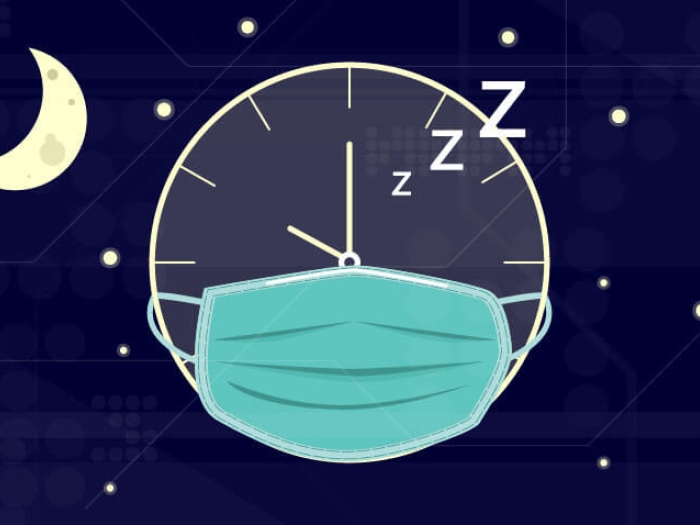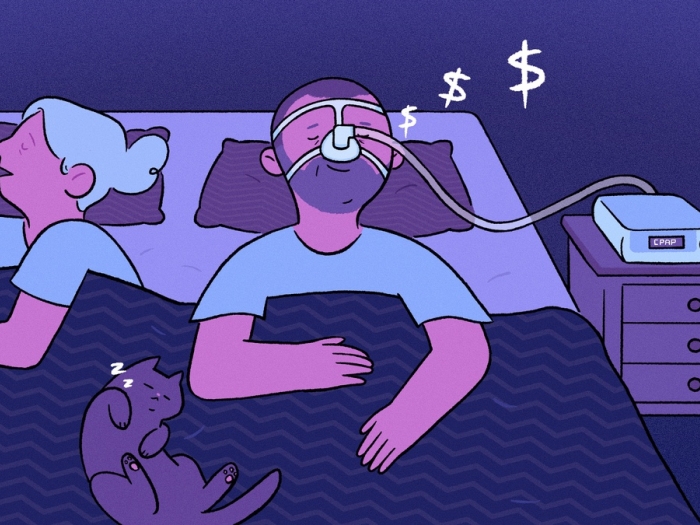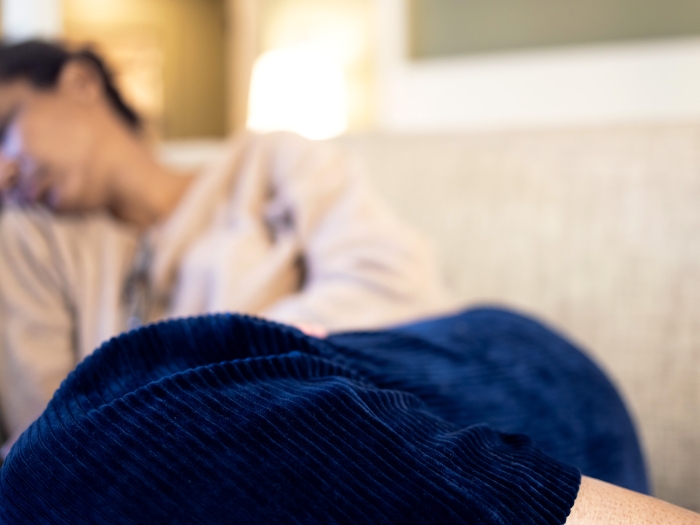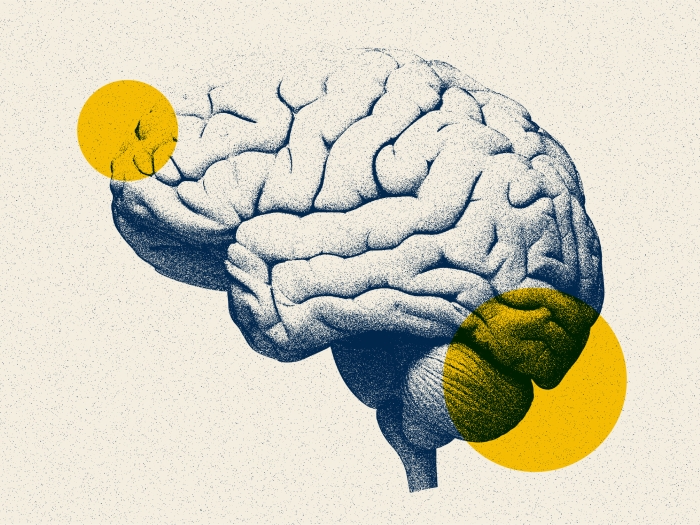Sleep medicine experts say psychotherapy is the first line treatment for chronic insomnia
12:00 PM
Author |

A Michigan woman who lived with insomnia for over 30 years underwent specialized therapy for sleep disorders and is finally resting through the night.
“By nature, I am an anxious person,” said Jill Sierra-Dinninger, 52, of DeWitt, Mich.
“After going through this, I do not have anxiety about going to sleep anymore. The thought no longer consumes me and that is freeing.”
Years of restless sleep
Jill’s Sierra-Dinninger’s sleep issues began during college. There were nights she “didn’t sleep a wink” and others during which she would wake up multiple times.
“You name it, I struggled with it,” said Jill, who is a mental health therapist for children and teens in Clinton County.
“I was more emotional. I found it difficult to focus and couldn’t think as well. It affected a variety of areas of my life.”
Around 10% of adults experience chronic insomnia disorder, meaning they have trouble falling and/or staying asleep at least three nights per week over a period of three months or more. Those sleep issues impair daily functioning and can lead to long term health consequences, such as mood disorders and cardiovascular problems.
For years, Jill took higher doses of different sleeping medications. The drugs either did not work at the onset or her body eventually adjusted to them, limiting their effectiveness.
“I also did not want to be relying on sleeping pills for the rest of my life,” she said.
“It did not feel like a solution for my insomnia which was raging.”
Cognitive behavioral therapy for insomnia
While searching for options online, Jill found the Behavioral Sleep Medicine Program at Michigan Medicine.
The specialty clinic serves adults with sleep disorders, focusing on psychological and behavioral approaches to treatment. Disorders commonly seen include insomnia, sleeping pill dependence and circadian rhythm disorders.
Jill participated in just four weekly online sessions of cognitive behavioral therapy for insomnia, or CBT-I. The highly structured treatment contains different sessions geared toward specific cognitive or behavioral techniques shown to improve sleep quality.
“Cognitive behavioral therapy for insomnia can be effective in about 70-80% of patients and has longer lasting improvements on sleep compared to medications,” said Deirdre Conroy, Ph.D., clinical director of the Behavioral Sleep Medicine Program and a clinical professor of psychiatry at U-M Medical School.
The cognitive aspect of CBT-I concentrates on changing mindset — debunking harmful beliefs and catastrophization, or jumping to the worst possible conclusion, related to sleep.
All patients join a sleep app, which allowed them to record their sleep activities. They are encouraged to take ownership of their sleep and practice accountability throughout the process.
“Every session we had, I took a nugget of something helpful with me,” Jill said.
“I felt heard, listened to and understood. This was a group thing, so it was also helpful to meet other people experiencing the same thing.”
The intervention also addresses behavioral change, using sleep restriction therapy and stimulus control therapy. Sleep restriction therapy, simply, involves reducing the amount of time spent in bed to increase your sleep efficiency, or the amount of time you spend actually sleeping in your bed.
Additionally, Jill rewired her brain to strengthen the bed and bedroom as a cue for sleep instead of wakefulness or agitation. She achieved this by leaving the bedroom if she found herself lying in bed awake. This technique called stimulus control allows patients to break the association between the bedroom and insomnia.
“We encourage people to avoid spending time in their bed not sleeping,” Conroy said.
“For example, avoid engaging with the phone or watching TV or a laptop in bed.”
Raising awareness
After four weeks of CBT-I, Jill has a completely new relationship with sleep.
“I am now off of all of my sleep medication, and I occasionally have a rough night, but the anxiety is gone,” she said.
“It has truly been lifechanging. As a therapist, I know the importance of sleep for mental and physical wellbeing. Even though I’m a therapist, I did not know CBT existed for insomnia.”
Dinninger is not alone. Even though CBT-I is considered the first-line treatment for chronic insomnia, researchers say its reach is limited.
“Despite the fact that CBT-I is the standard of care, clinicians may be unaware that this is a therapeutic option, may not have a local provider to deliver CBT-I or lack the resources to deploy this therapy themselves,” said Cathy Goldstein, M.D., M.S., neurologist and sleep medicine physician at U-M Health and clinical professor of neurology at U-M Medical School.
“We are hopeful that digital CBT-I can assist in closing this gap.”
Studies have also shown that CBT-I can lead to significant reductions in the use of hypnotic sleep medications, which have more significant side effects.
Both Conroy and Goldstein say targeted strategies are needed to increase the number of providers who provide CBT-I and, therefore, the number of patients who receive treatment.
“The need for insomnia therapy is larger than the supply of qualified providers,” Conroy said.
“We are dedicated to providing education to learners interested in the field of sleep medicine.”
Conroy adds that patients interested in joining the insomnia course should discuss it with their primary care doctor.
Sign up for Health Lab newsletters today. Get medical tips from top experts and learn about new scientific discoveries every week by subscribing to Health Lab’s two newsletters, Health & Wellness and Research & Innovation.
Sign up for the Health Lab Podcast: Add us on Spotify, Apple Podcasts or wherever you get you listen to your favorite shows.

Explore a variety of healthcare news & stories by visiting the Health Lab home page for more articles.

Department of Communication at Michigan Medicine

Want top health & research news weekly? Sign up for Health Lab’s newsletters today!





